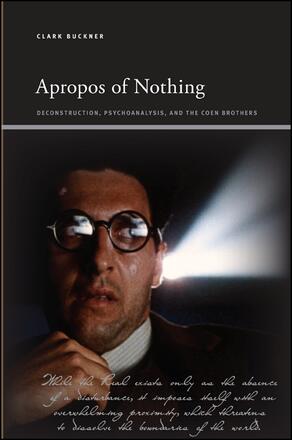
Apropos of Nothing
Deconstruction, Psychoanalysis, and the Coen Brothers
Alternative formats available from:
Everything you wanted to know about the Lacanian critique of deconstruction, but were afraid to ask the Coen Brothers.
Description
The Coen Brothers' films are rife with figures of absence. In The Big Lebowski, the Dude does nothing. He is put on the trail of a kidnapping that never happened, and solves the crime when he realizes that he paid the ransom with "a ringer for a ringer." The Hudsucker Proxy features a dupe who draws zeros throughout the film, enthusiastically proclaiming, "You know, for the kids!" Barton Fink is a film that revolves around the absence of a film. In Apropos of Nothing, Clark Buckner appeals to these and other figures of the void in the Coen Brothers' films in order to articulate the close proximity and ultimate opposition between Lacanian psychoanalysis and Derridean deconstruction. In the process, he situates both theories in relationship to Heidegger's existential phenomenology, and undertakes a comparative analysis of the negativity in death, language, drive, anxiety, visual perception, paternity, and the unconscious. Formulating one of the most theoretically rigorous readings of the Coens' oeuvre to date, Buckner also offers a readable overview of some central debates in late twentieth-century continental philosophy.
Clark Buckner teaches in the School of Interdisciplinary Studies at the San Francisco Art Institute and is the coeditor (with Matthew Statler) of Styles of Piety: Practicing Philosophy After the Death of God.